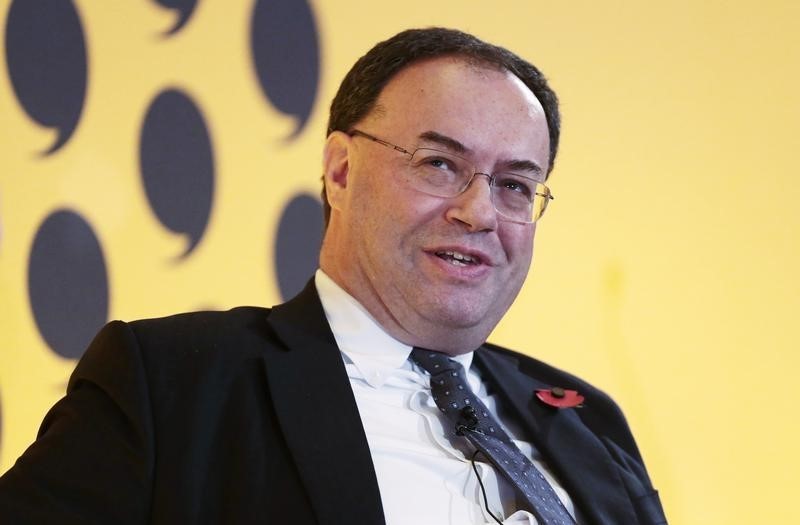(Bloomberg) -- Bank of England Governor Andrew Bailey said the U.K. labor market will provide the missing evidence necessary to determine the timing of an increase in interest rates and that officials won’t “bottle” on making moves when they must.
The comments may increase speculation about a boost for borrowing costs next month even after policy makers defied market expectations in their decision to stay on hold on Thursday. In making that judgment, officials shifted their focused to concerns about jobs and growth rather than predictions for a spike in inflation.
Rates will still need to rise sometime in the coming months to keep inflation to target, Bailey said on BBC Radio 4’s “Today” program on Friday. “Let me assure you, we won’t bottle it,” he said.
The labor market element was the most important factor in Thursday’s decision for no change, Bailey said, noting that policy makers need more information on the impact of the end of the government’s pandemic jobs support plan before acting.
“If you ask the question why haven’t we done it now, the answer is all to do really with the labor market in my view,” Bailey said. There were more people on the furlough plan than the BOE expected when it closed in September, he said, and what happens to those is key.
The early indications are that many of those employees returned to the their roles, which may clear the way for a hike in December. A series of releases Thursday suggested unemployment rose by 150,000 once the plan ended.
Markets are currently implying around an 80% chance of a move in December, down from 89% on Thursday evening. A number of economists, including at Deutsche Bank (DE:DBKGn) and Credit Suisse (SIX:CSGN), who saw a move on Thursday now expect it to come next month. Investors are also less hawkish on the BOE’s path in 2022 and are now pricing in a rate of just below 1% by the end of next year, compare with above 1.25% before the decision.
The labor market looks “tight in this country at the moment,” Bailey said, “But the missing piece of evidence in many ways is just what has happened after the end of the furlough scheme. We don’t have any data at the moment, particularity the sort of comprehensive official data, to guide us on that.”
There are two official releases on the labor market between now and the BOE’s Dec. 16 decision, with the September report due on Nov. 16 and the October data coming on Dec. 14. The central bank will scour official data for information about pressure in the market after the plan ended, including on including employment, unemployment and wages, he said.
Still, “it is important people don’t think there is only one thing that is going decide the next decision,” Bailey cautioned. “But it is an important one.”
